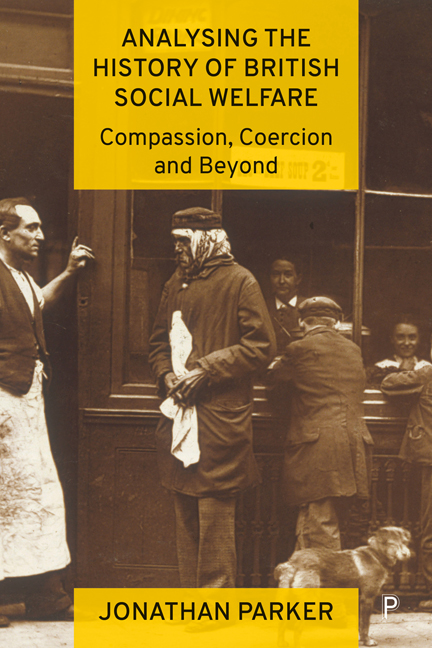Book contents
- Frontmatter
- Contents
- List of tables
- List of abbreviations
- About the author
- Acknowledgements
- 1 Concepts, continuities and critique
- 2 A brief history of British social welfare
- 3 Philosophical binaries and normative judgements
- 4 Chocolate, flowers and social welfare reform
- 5 War: the paradoxical crucible of welfare reform
- 6 Gendered perspectives on welfare
- 7 Piacular austerity: sacrificing the poor for the rich
- 8 Universal Credit versus Universal Basic Income: strange bedfellows?
- 9 Universal Credit versus Universal Basic Income: strange bedfellows?
- 10 W(h)ither welfare after Brexit and COVID-19?
- References
- Index
6 - Gendered perspectives on welfare
Published online by Cambridge University Press: 20 January 2024
- Frontmatter
- Contents
- List of tables
- List of abbreviations
- About the author
- Acknowledgements
- 1 Concepts, continuities and critique
- 2 A brief history of British social welfare
- 3 Philosophical binaries and normative judgements
- 4 Chocolate, flowers and social welfare reform
- 5 War: the paradoxical crucible of welfare reform
- 6 Gendered perspectives on welfare
- 7 Piacular austerity: sacrificing the poor for the rich
- 8 Universal Credit versus Universal Basic Income: strange bedfellows?
- 9 Universal Credit versus Universal Basic Income: strange bedfellows?
- 10 W(h)ither welfare after Brexit and COVID-19?
- References
- Index
Summary
Women have been and remain integral to the development and delivery of care and social welfare but have an ambivalent relationship to it, sometimes being side-lined and hidden, sometimes being obliged to undertake roles they may otherwise choose not to, and sometimes being constrained by essentialist notions of gender characteristics that reflect unspoken assumptions about women's ‘natural’ caring natures. Thane (1978) recognised that women are often hidden within or excluded from histories of social welfare policy, which:
largely neglect, as most historians of social policy do, the especial problems of poor women. Women however were a majority of the population, were less able to help themselves when unmarried or widowed due to low wages and employment opportunities, and were if married, less likely to receive benefit when unemployed than men, and could rarely be members of self-help organisations such as friendly societies and trade unions. (Thane, 1978, p 19)
It is interesting to note, also, that this exclusion appears to be related to assumptions of patriarchal privilege. One chapter in Thane's collection is indexed as relating to women because it deals with family allowances (Macnicol, 1978). Women are cast as dependents, family-bound, childrenfocused and caregivers, but not as individuals in their own right.
Women have held a central place in welfare in terms of provider role, catalysts for change but also recipients of patriarchal givens and normative expectations. This ambiguous and somewhat contradictory positioning of women should be seen in the context of gender-power relations and feminist approaches to formal and informal welfare practices and philosophies. Religious thinking and political or social ideologies drive welfare policies and practices in respect of gender.
There are early examples of gendered differences in caregiving. For instance, there was the expression of gendered essentialist ideas of caregiving in which women in the early Christian church assumed nurturing and serving roles while men tended towards more physical ways of offering support such as digging graves. Then in renaissance Italy we witnessed a change from flexible informal approaches to masculinised administrative ones.
- Type
- Chapter
- Information
- Analysing the History of British Social WelfareCompassion, Coercion and Beyond, pp. 96 - 117Publisher: Bristol University PressPrint publication year: 2023



